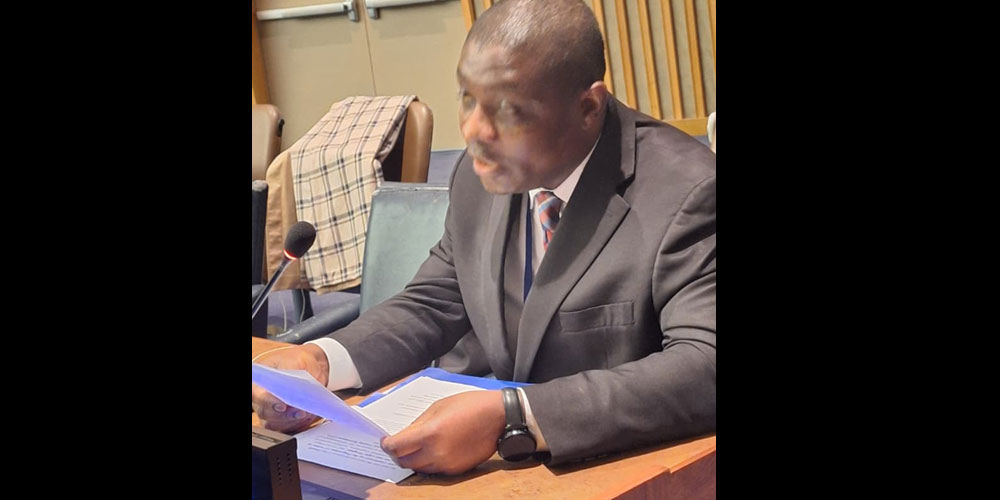UN HQ, Manhattan, New York, United States | March 28, 2025: Mr. Chair, Liberia aligns itself with the statement delivered on behalf of the African Group and wishes to add the following remarks in its national capacity.
The continued rise in terrorism, violent extremism, and the illicit proliferation, diversion, and unsafe management of conventional arms around the world pose a persistent threat to international peace, security, and development. The humanitarian and developmental consequences of poorly managed ammunition stockpiles—from accidental explosions to displacement, environmental degradation, and loss of livelihoods—are severe and far-reaching. These challenges undermine the goals of the United Nations Charter and the principles that underpin the multilateral disarmament architecture.
As a post-conflict nation deeply committed to preventing any relapse into armed violence, Liberia considers effective conventional arms control essential to fostering national resilience, regional stability, and sustainable development.
The Government of Liberia reaffirms its unwavering commitment to strengthening the multilateral approach in addressing issues of international security and arms control. This approach provides the framework for adherence to key disarmament instruments, including the Arms Trade Treaty (ATT), the UN Programme of Action on Small Arms and Light Weapons (PoA), the Global Framework for Through-Life Conventional Ammunition Management, the Convention on Cluster Munitions (CCM), and the Political Declaration on Explosive Weapons in Populated Areas (EWIPA), among others
Mr. Chair,
Liberia’s contributions to the implementation of these instruments—and others not mentioned—demonstrate our meaningful engagement within the international community in promoting peace and ensuring that our national policies continue to support global security and sustainable development.
We welcome the outcome document of the Fourth Review Conference on the Programme of Action on Small Arms and Light Weapons, and we encourage continued international cooperation, technical assistance, and capacity-building to ensure the full implementation of the PoA, the International Tracing Instrument (ITI), and other global commitments.
Mr. Chair,
It is important to underscore that conflicts are not driven solely by the availability of weapons, but also by the illicit economies that sustain their supply chains. The 2030 Agenda for Sustainable Development, particularly Sustainable Development Goal 16 on Peace, Justice, and Strong Institutions, and the Secretary-General’s New Agenda for Peace, both call for an integrated approach that links peacebuilding, security, and sustainable development.
These frameworks clearly highlight the connection between arms control, natural resource governance, and the curbing of illicit financial flows.
Liberia shares the view that the trade in rough diamonds used to finance armed conflict remains as much a concern for disarmament as the proliferation of conventional weapons—especially when such trade serves as an economic driver for the diversion of arms, poor stockpile management, and illicit trafficking.
As a proud and active participant in the Kimberley Process Certification Scheme (KPCS), Liberia underscores the vital role this mechanism plays in curbing the trade in conflict diamonds that once fueled the flow of small arms and ammunition, contributing to instability and violence, particularly within the ECOWAS region.
We believe that the Kimberley Process, alongside instruments such as the Arms Trade Treaty and the Global Ammunition Framework, are mutually reinforcing and complementary tools for conflict prevention. Accordingly, the KPCS should also encourage global efforts toward the responsible management and transfer of conventional ammunition.
Thank you.

